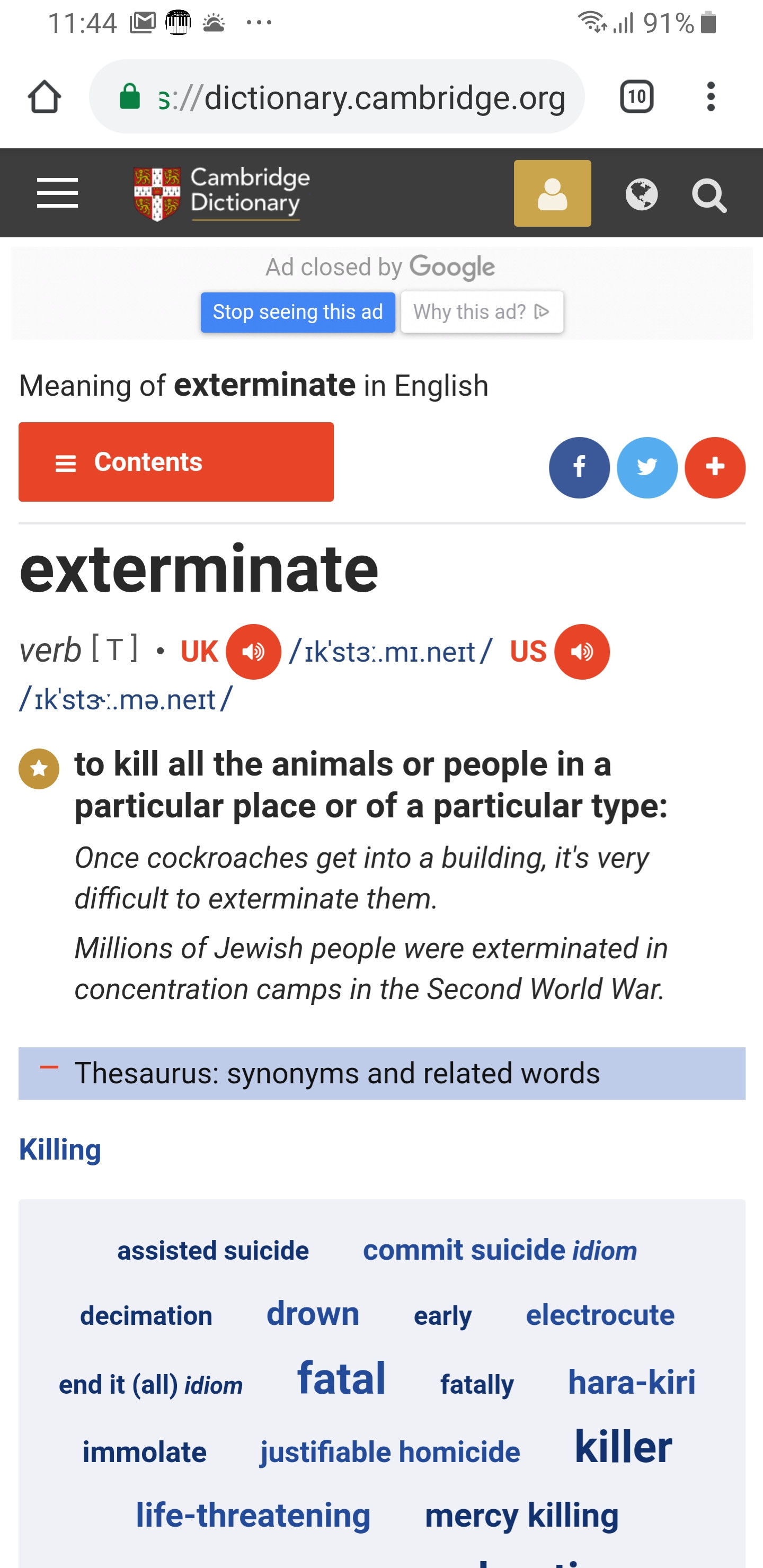Extinct (v.) has existed (obsolete). So the answer is, "no not at the moment." English is not constrained by an official form so dictionaries follow usage and create educational standards. Extinct (v) could become proper again simply by being used enough or published by someone reputable enough. Still, most high school students will only encounter it in Henry VIII or Othello. I rather like extincted.
Questions of "does this word exist" always give me a pause, because it's rather a bit like putting the cart before the horse. :)
(if any are curious about how it was used I've included the bulk of the OED entry for the obsolete form).
From the definitive source (OED retrieved 6/19/2015) :
1. trans. = extinguish v. 1.
1483 Caxton tr. J. de Voragine Golden Legende 250/1 The blessid laurence had fyue brennynges withoute forthe whiche he al ouercam manly and extyncte them.
a1513 H. Bradshaw Lyfe St. Werburge (1521) ii. 166 The feruent great fire extincted was in-dede.
1570 J. Foxe Actes & Monumentes (rev. ed.) I. 105/1 Eugenia..was..put into hoate bathes, which were extincted, and she preserued.
2. = extinguish v. 2.
1542 A. Borde Compend. Regyment Helth xx. sig. K.i, Purslane dothe extynct the ardor of lassyuyousnes.
?1555 Coverdale tr. Hope of Faythful Pref. f. iiiiv, Not to stir vp gods grace in vs..wer to..extinct the spirite.
1556 J. Heywood Spider & Flie vii. 39 It is more hard, loue to our selues to extinkt.
3 a. = extinguish v. 3.
1484 Caxton tr. G. de la Tour-Landry Bk. Knight of Tower (1971) ix. 22 The grete good dedes and abstynence that I dyde quenchyd and estyncted al my synnes.
1547 in E. Cardwell Documentary Ann. Church Eng. (1839) I. 42 They have..utterly extincted and destroyed..all images.
a1552 J. Leland Itinerary (1712) VIII. 14 The Name of the Barony of Say is extinctid.
1598 F. Meres Palladis Tamia f. 287v, One straine of Musicke extincts the pleasure of another.
1603 H. Crosse Vertues Common-wealth sig. E4, Two contraries, cannot ioyntly hold possession, but one will vtterly extinct the other.
3 b. To put an end to, make void (a law, legal right, status, ordinance). Also, to cancel (a licence, the claim of a creditor). Cf. extinguish v. 3b.
3 c. To abolish, suppress (a state of things, custom, institution).
1531–2 Act 23 Hen. VIII c. 20 To extinct and make frustrate the paymentys of the said Annates or first fruytes.
1540 Act 32 Hen. VIII c. 22 §3 Many chanteries..ben sins yt time vtterly dissolued and extincted.
3 d ...
3 e ...
Derivatives: exˈtincted adj.
a1616 Shakespeare Othello (1622) ii. i. 82 He may..Giue renewd fire, To our extincted spirits.
exˈtincting n.
1513 King Henry VIII Let. in J. Strype Eccl. Mem. I. App. i. 3 Wee..have, for the extincting of the detestable Schisme..entred actual war.
1631 J. Weever Anc. Funerall Monuments 113 For the..vtter extincting of..power and authoritie.

